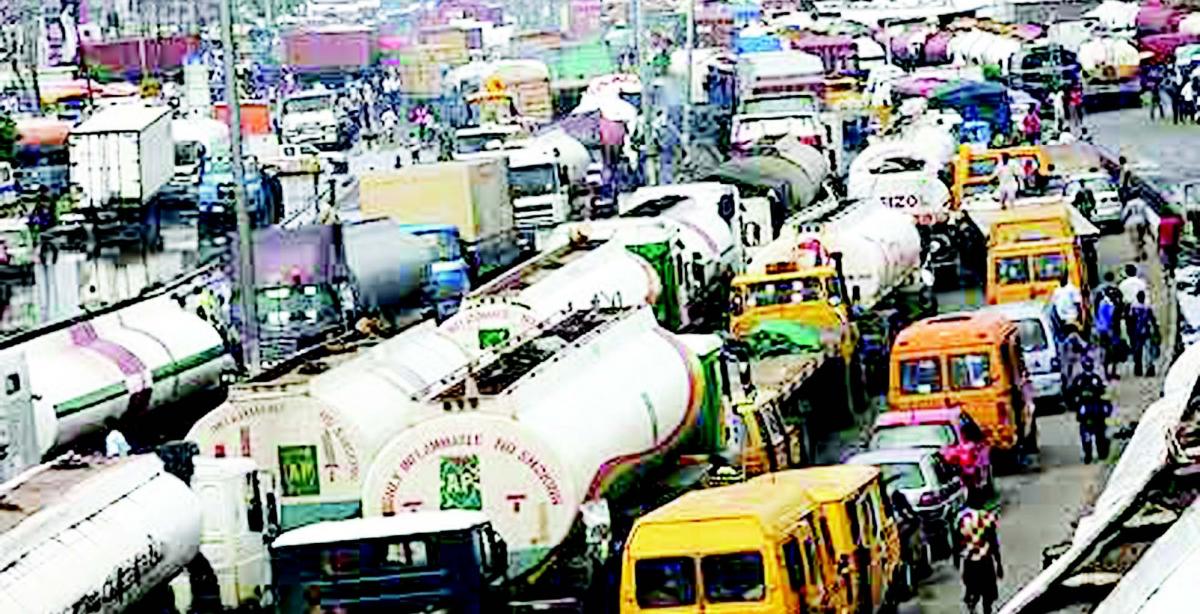There are no products in your shopping cart.
| 0 Items | £0.00 |

 PLANS are underway to commence an aggressive expansion of several seaports along Nigeria's coastline as part of an ambitious programme to address the gridlock at the Apapa port in Lagos that has turned the area into an environmental hazard.
PLANS are underway to commence an aggressive expansion of several seaports along Nigeria's coastline as part of an ambitious programme to address the gridlock at the Apapa port in Lagos that has turned the area into an environmental hazard.
Handling over 1m 20-foot containers a year, Apapa is by far Nigeria's busiest port and overwhelmed by the amount of cargo it has to deal with, the area surrounding it has become among the most polluted parts of the country. Suffering from constant traffic jams, 40-foot container trucks litter the road to Apapa and the traffic jams go as far back as 10km in queues, polluting the environment with diesel fumes.
With the matter now becoming a grave environmental hazard, Nigeria is building new deep-seaports to relieve Apapa which handles 80% of the cargo coming into the country. A new facility is already under construction in the Lekki Free Trade Zone in Lagos through a public-private partnership, while another may be built in the Badagry area of the city, near the border with Benin Republic.
Hadiza Bala-Usman, the managing director of the Nigerian Ports Authority (NPA), said that a third project, the Ibom seaport, is under consideration in the Niger Delta. In the past, the government has invested in developing the eastern ports of Warri, Calabar, Onne and Port Harcourt but their river channels are too narrow to accommodate large vessels, forcing shipping companies to keep using Lagos.
Last year, the NPA last year commenced the dredging of Warri port at the cost of $44.861m and there are plans to accelerate this process. Ms Bala-Usman has also encouraged flat-bottomed vessels that do not require too much sea depth to berth at the eastern ports such as Port Harcourt and Calabar.
She added that so far, the response has been encouraging as there was an increase in the number of such vessels calling at the Port Harcourt and Calabar ports since last year. To address the congestion in Lagos, the government wants to focus on improving the nearby roads and other infrastructure to ease the transportation of goods including cars, computers, food and machinery.
Ms Bala-Usman added: “We have congestion because 80% of our cargo goes on the road. You must have that seamless evacuation, if not, it’s laughable to think you will not have congestion.” she
Shipment delays of almost eight weeks prompted the National Cashew Association of Nigeria to raise an alarm last month as $300m worth of nuts remained stuck in containers on trucks waiting to enter the port of Apapa. Inadequate infrastructure, stifling red tape and corruption at the ports are hurting business, the Nigeria Cashew Exporters Association said.
Similar concerns were voiced by Nigeria's cocoa exporters last year after trucks carrying beans took as long as four weeks to get through the potholed roads to the ports, pushing up haulage costs and putting sales contracts at risk. Ms Usman said that the ministry of transport is building a new railway to the Lagos ports to speed up the evacuation of cargo.
For now, trailer parks are being built to take trucks off the road and barges have been deployed to move cargo on inland waterways. Lagos is Africa’s biggest city, with Lagos State having an estimated population of 22m people.